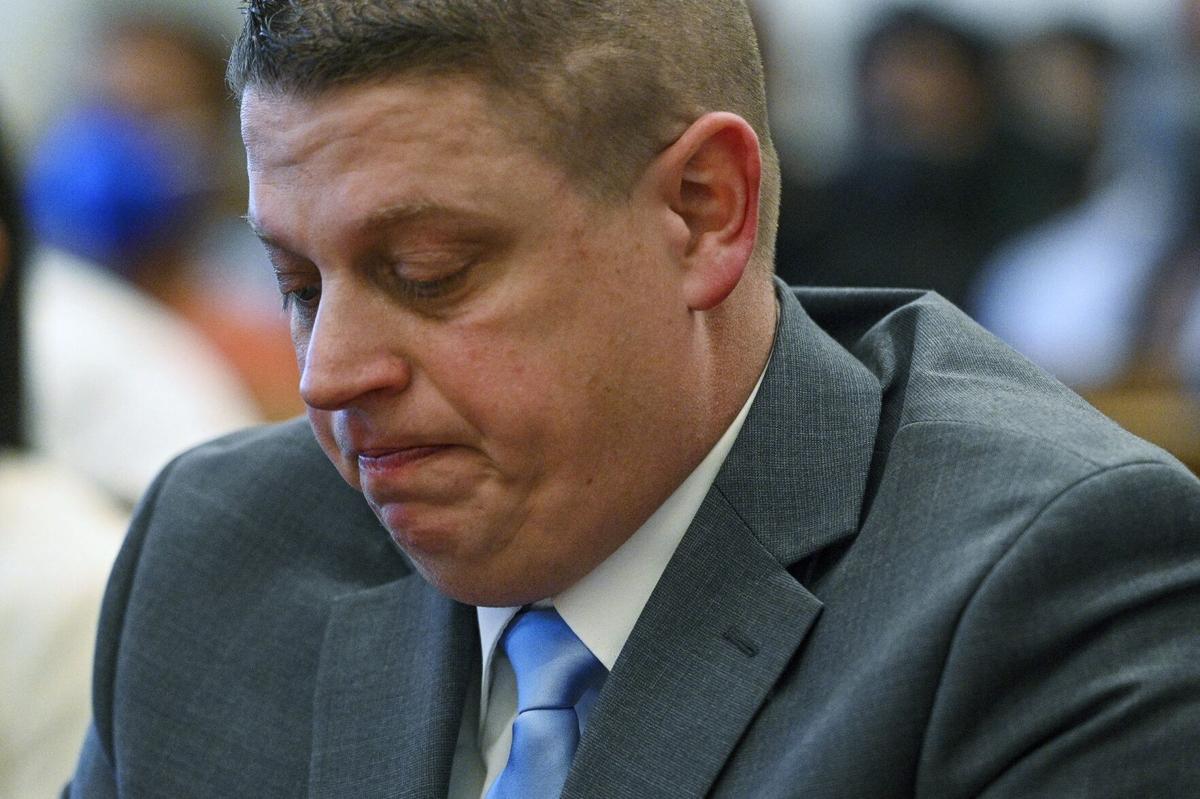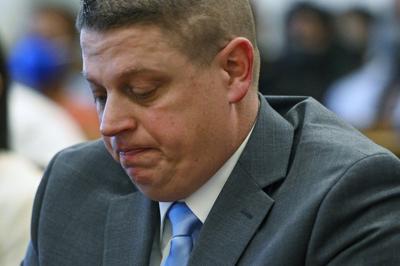JEFFERSON CITY — Missouri Gov. Mike Parson on Friday commuted the prison sentence of former Kansas City police detective Eric DeValkenaere, the first Kansas City officer ever convicted of killing a Black man, an explosive decision that will infuriate residents and risk damaging the state’s relationship with the city.
Parson announced the commutation in the twilight of his time in office, offering the clemency on the Friday afternoon ahead of Christmas holiday week. The Republican governor, a former Polk County sheriff who styles himself an ally of law enforcement, had signaled in recent months that he planned to free DeValkenaere, declaring in August that “I don’t like where he’s at.”
DeValkenaere, who is white, was convicted in 2021 of involuntary manslaughter in the fatal shooting of Cameron Lamb, a Black man, in December 2019. DeValkenaere shot and killed the 26-year-old as Lamb was backing his pickup truck into his garage. The shooting took place roughly nine seconds after DeValkenaere and his partner pulled up to Lamb’s residence.
People are also reading…
DeValkenaere was sentenced to six years in prison but remained free on bond as his criminal appeal worked through the courts. The ex-detective surrendered to authorities in October 2023 when the Missouri Court of Appeals upheld his conviction. The Missouri Supreme Court declined to hear the case.
Parson didn’t comment directly on the commutation. DeValkenaere’s name was included on a larger list of individuals who received pardons and commutations.
“In Missouri, clemency powers rest exclusively with the Governor. After careful consideration, Governor Parson today exercised his constitutional authority on a number of final pending clemency petitions,” Parson spokesman Johnathan Shiflett said in an email when asked about DeValkenaere.
DeValkenaere’s official commutation document, signed by Parson, does not pardon the former officer. Instead, it places him on parole, “subject to the conditions imposed by the Parole Board.”
The parole board has the power to revoke DeValkenaere’s parole if violates the conditions, which weren’t immediately clear.
DeValkenaere, 46, had been serving his sentence outside of Missouri, but authorities didn’t identify where he was incarcerated. It wasn’t immediately clear whether DeValkenaere was still in prison or when he would be freed.
The act of clemency represents an extraordinary intervention by the governor into the local justice system.
Kansas City has no control over its police department, one of the few state-run forces in the country, leaving the legal system as one of the few avenues for police accountability available to residents.
The commutation is expected to spark a furious backlash in Kansas City. Lamb’s family had repeatedly denounced the anticipated clemency, and Jackson County Prosecutor Jean Peters Baker, a Democrat who prosecuted DeValkenaere, previously warned Parson that clemency “will ignite distrust, protests, and public safety concerns for citizens and for police.”
“I think it’s just so disrespectful for you to say you all want to have this man’s back who murdered an innocent man, took him from his family and his boys,” Lamb’s mother, Laurie Bey, said on Dec. 3, the fifth anniversary of Lamb’s death.
The Kansas City Law Enforcement Accountability Project, or KCLEAP, in a statement said it was “saddened but not surprised” but the commutation. “Reducing the sentence of a police officer convicted of killing an unarmed Black man can undermine efforts to achieve justice, accountability, and trust in law enforcement,” the group said.
The clemency isn’t the end of DeValkenaere’s legal troubles. The ex-officer still faces a federal lawsuit brought by Lamb’s family that alleges a violation of the Fourth Amendment and claims he used excessive force. The family is seeking more than $10 million in compensatory damages.


















